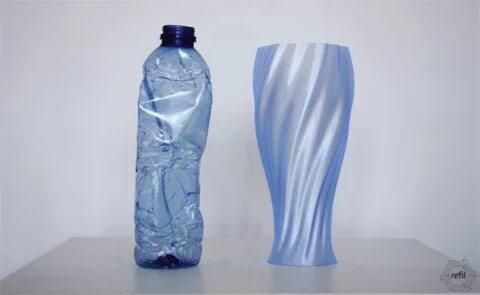The EU-LAC Foundation announced the winners of the open call for case studies of companies with the best practices in integration of the concepts of Circular Economy and the Sustainable Development Goals (SDGs) in the entrepreneurial strategies of the European Union, Latin America and the Caribbean.
The call took place in the first semester of the current year, and 45 companies were nominated, 10 from Europe and 35 from Latin America and the Caribbean. From this total, 28 businesses presented practices regarding the SDGs and 19 entities participated in the topic of Circular Economy.
The aim of the call was to promote economic inclusion, innovation, and sustainability through the dissemination of good entrepreneurial practices. Therefore, the selection of the case studies focused on identifying opportunities to exchange experiences and teachings among countries and at the bi-regional level. The firm that executed the project, InnovacionAL from Chile, supported the process.
Furthermore, the representatives of the three best practices on each topic will be invited to present their results as part of a panel at the World Forum Lille conference from 16th to 18th October 2018 in Lille, France.
On the topic of Sustainable Development Goals, the CEOs of the companies Iskraemeco (energy-Slovenia), Pacari (food-Ecuador), and Las Tacuaras Nutrihuevos (food-Paraguay) will participate. Regarding Circular Economy, the representatives from Anana Anam (textiles-United Kingdom), Better Future Factory (engineering-Holland) and Neptuno Pumps (engineering-Chile) will participate.
The selected case studies will be compiled in a publication.
Winning projects in SDGs integration
1. Iskraemeco, energy domain. Slovenia. Development of “Smart Metering” an intelligent tool for measuring consumption of electricity, that contributes to change not only the energy infrastructure, but also the behaviour of consumers.
2. Pacari, food domain. Ecuador. Associative programme with cacao producers, organic chocolate production.
3. LIPOR, waste management domain. Portugal. Development of a strategy to decrease carbon emissions with the collaboration of the community through diverse initiatives.
4. Las Tacuaras Nutrihuevos, food domain. Paraguay. Micro-franchises for women who sell eggs.
5. Telefónica, telecommunications. Spain. Development of internal initiatives to generate a positive impact on society and the environment. In their fourth edition, besides employees and business units, it includes provides and start-ups supported by the company.
6. Unilever, mass-consumption products. Argentina. Development of a cleaning product that guarantees a responsible consumption and sustainable production.
7. Produbanco, finances. Ecuador. Green Lines Programme that promotes environment-friendly energy production through financing projects of energy efficiency.
8. BAGO, pharmaceuticals. Chile. Programme to prevent violence against women.
9. FEMSA. Beverages sector. Mexico. Programme of water funds to recover water and put it back into the ecosystem.
Winning projects in Circular Economy
1. Closing the Loop, mobile phone sector. Holland. Collection of phones no longer used in African countries and extraction of metals that can be reused
2. Better Future Factory, engineering. Holland. Through engineering solutions they turn waste into commodities. For example, recycled plastic is used as supplies for 3D printing, plastic trays, and others.
3. Neptuno Pumps, engineering. Chile. Design of pumps that are up to 30% more efficient, while producing 60% of their products with reused and recycled supplies, which reduces their carbon footprint by 70%, and waste by 75%.
4. Pulpak, paper industry- packaging. Argentina. The Eco Pulpo division aims at offering an integral solution to the problem of industrial supplies after consumption. The objective is to reduce waste that industries burn or send to landfills, by transforming it into new products.
5. Laboratorio Tecnológico del Uruguay (LATU), meteorology and technology area. Pilot project on management of cellulose waste and bins to make it extensive for the different waste modalities of the organization.
6. Ananas Anam, textiles. United Kingdom. Production of Piñatex, an alternative to leather from pineapple leaf fibres.
7. Donar, furniture manufacturing. Slovenia. Development of products out of recycled felt, using waste as an industrial input in the future.
This activity is part of the project on bi-regional cooperation regarding Corporate Social Responsibility of the EU-LAC foundation, which is executed by InnovacionAL.
The Foundation is in the process of becoming an international organization. The headquarters of the Foundation are in Hamburg, Germany. The Foundation has 62 members that include the 33 States of Latin America and the Caribbean, the 28 members of the European Union, and the European Union itself.
